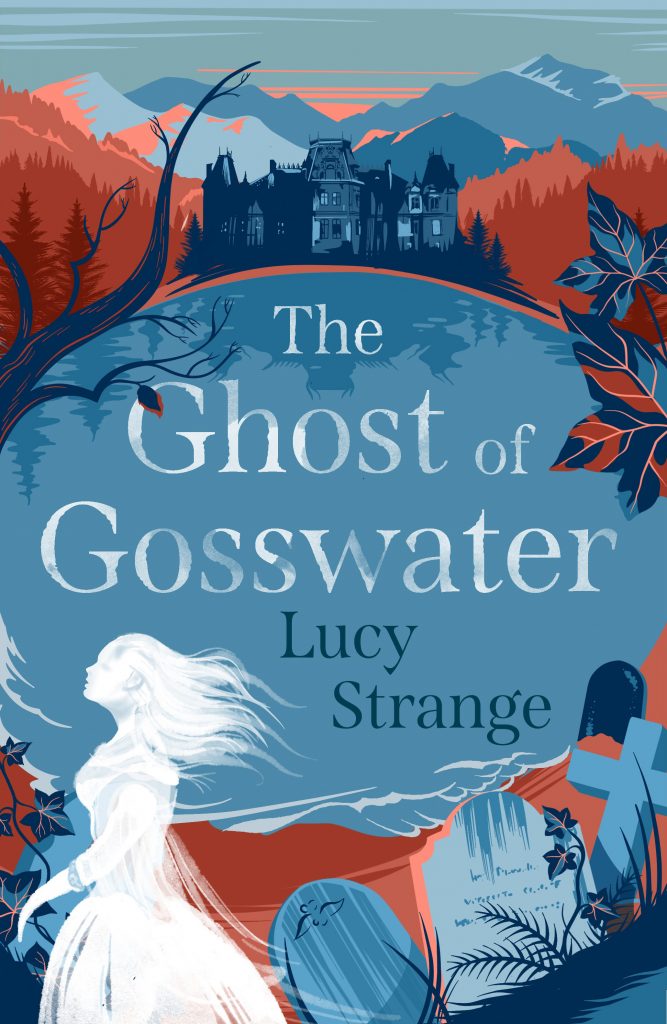Lockdown, and the Landscape of Literature
by Lucy Strange

It is a sad fact but, as the years go by, I forget the plots of the many books I have read and loved. The characters slowly blur and fade, as do their deepest desires and their darkest secrets. But the landscapes of these stories never seem to leave me.
The ups and downs of Pip’s Great Expectations have long since melted away, but I can still feel the chill of those bleak marshes on which he first met the convict Magwitch. The twists of fate that led Jane Eyre into the arms of Mr Rochester are a little sketchy now, but the grey battlements of Thornfield Hall are crystal clear in my mind; I get confused about who’s who with all those generations of Earnshaws and the Lintons, but the sound of the wind wuthering over the dark moors lives deep within my soul.
I’m a sucker for an atmospheric setting, both as a writer and a reader. I love soaking up the feel of a story, wallowing in the moods of its landscapes. When browsing my bookshelves and the To-Be-Read towers that teeter on my bedside table, I say to myself, ‘I want to go here,’ and, ‘I want to feel like that,’ as if I were perusing a holiday brochure for my brain.
And Lockdown has intensified this need to ‘go’ somewhere else. It is a cliché that we read to escape, but for many of us, the challenges of 2020 have made this literary escapism more necessary than ever. As the four walls of home pressed ever closer, I ran away for some glorious romantic romps with Georgette Heyer’s heroines: rattling through the hills in a stagecoach and sipping smuggled whisky in a country inn. When I had to cancel our family holiday to the Lake District, I fled to the Cumbrian coast with Hilary McKay’s Exiles, to scramble breathlessly up the fells, to splash in the ice-cold waves, and to sit peacefully in Big Grandma’s garden, watching the sun set as I fished-in-a-bucket.
Such adventures of the imagination offer delicious nostalgic moments too. I can open a book and be ten years old again, hiding in George’s cave on Kirrin Island, cocooned by the cool, shadowy rock, and feeling the powdery sand between my toes. Or I can be twenty – taking flight to Cornwall with Daphne du Maurier – to inhale the scent of honeysuckle and gorse, to hear the strange song of the nightjar, to drift down the midnight river into the arms of the sea (not to mention the arms of a rather handsome French pirate).
There is a unique pleasure, I feel, in seasonal reading: turning the pages of The Woman in Black by your cosy fireside, while cold mists swirl in the world beyond the window; or soaking up the sunshine in the garden while your brain meanders down the lazy river with Moley and Ratty. This doubling-up of sensations within and without, brings literary landscapes to life in a particularly pleasing way.

And it doesn’t matter how fantastical those landscapes might be. My brain loves a jaunt through the strange forests of Wonderland just as much as it enjoys a minibreak in E.M. Forster’s Florence. The fantasy genre has always offered us the pleasure of escape to somewhere utterly Other, but – let’s face it – it has never been more tempting to open the door of that wardrobe and step into a world that is fresh and new. And of course, best of all, one doesn’t have to quarantine on returning from Narnia.
Lucy Strange’s latest novel, The Ghost of Gosswater, is set in the Lake District in 1899, and is published by Chicken House on 1st October.





Gorgeous post, Lucy.